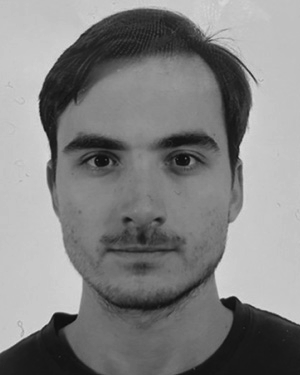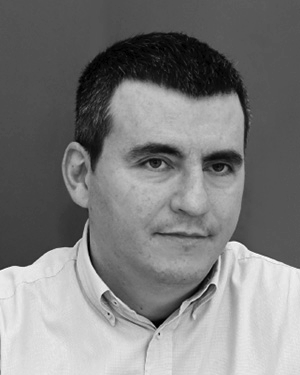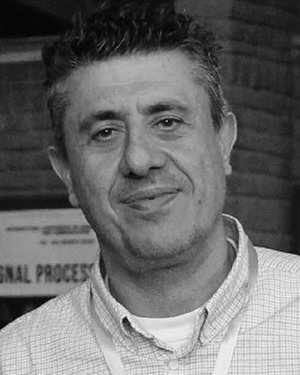Abstract:
The requirement of the upcoming sixth-generation (6G) wireless communication systems to significantly elevate the services of enhanced mobile broadband (eMBB) and massive...Show MoreMetadata
Abstract:
The requirement of the upcoming sixth-generation (6G) wireless communication systems to significantly elevate the services of enhanced mobile broadband (eMBB) and massive machine-type communications (mMTC) necessitates the design and investigation of appropriate multiple access schemes. This paper investigates the impact of random source deployment on the performance of uplink systems, emphasizing the implications of non-orthogonality in contention-free and contention-based access schemes. For the latter scheme, we combine the strengths of slotted ALOHA and successive interference cancellation. Considering the advantages of breaking orthogonality in scenarios with random source deployment, we propose distinct policies tailored for mMTC, eMBB, and hybrid mMTC-eMBB scenarios by splitting the cell into rings. Furthermore, we derive closed-form expressions for the outage probability, which play a pivotal role in extracting the throughput of the sources in the considered scenarios. The paper offers a comprehensive analysis of the proposed approach, corroborated through simulations, shedding light on the potential of such protocols in future 6G wireless communication systems.
Published in: IEEE Open Journal of the Communications Society ( Volume: 5)
Funding Agency:

Department of Electrical and Computer Engineering, Aristotle University of Thessaloniki, Thessaloniki, Greece
Apostolos A. Tegos received the Diploma degree (five years) in electrical and computer engineering from the Department of Electrical and Computer Engineering, Aristotle University of Thessaloniki, Thessaloniki, Greece, in 2022, where he is currently pursuing the Ph.D. degree. His current research interests include multiple access in wireless communications, optical wireless communications, and optimization theory.
Apostolos A. Tegos received the Diploma degree (five years) in electrical and computer engineering from the Department of Electrical and Computer Engineering, Aristotle University of Thessaloniki, Thessaloniki, Greece, in 2022, where he is currently pursuing the Ph.D. degree. His current research interests include multiple access in wireless communications, optical wireless communications, and optimization theory.View more

Department of Electrical and Computer Engineering, Aristotle University of Thessaloniki, Thessaloniki, Greece
Department of Informatics and Telecommunication Engineering, University of Western Macedonia, Kozani, Greece
Artificial Intelligence and Cyber Systems Research Center, Lebanese American University, Beirut, Lebanon
Sotiris A. Tegos (Member, IEEE) received the Diploma (five years) and Ph.D. degrees from the Department of Electrical and Computer Engineering, Aristotle University of Thessaloniki, Thessaloniki, Greece, in 2017 and 2022, respectively.
Since 2022, he has been a Postdoctoral Fellow with the Wireless Communications and Information Processing Group, Aristotle University of Thessaloniki and also with the Department of Applied ...Show More
Sotiris A. Tegos (Member, IEEE) received the Diploma (five years) and Ph.D. degrees from the Department of Electrical and Computer Engineering, Aristotle University of Thessaloniki, Thessaloniki, Greece, in 2017 and 2022, respectively.
Since 2022, he has been a Postdoctoral Fellow with the Wireless Communications and Information Processing Group, Aristotle University of Thessaloniki and also with the Department of Applied ...View more

Department of Electrical and Computer Engineering, Aristotle University of Thessaloniki, Thessaloniki, Greece
Department of Informatics and Telecommunication Engineering, University of Western Macedonia, Kozani, Greece
Dimitrios Tyrovolas (Graduate Student Member, IEEE) received the Diploma degree (five years) in electrical and computer engineering from the University of Patras, Greece, in 2020. He is currently pursuing the Ph.D. degree with the Department of Electrical and Computer Engineering, Aristotle University of Thessaloniki, Greece. He is also a Research Assistant with the Technical University of Crete, Greece. His current resea...Show More
Dimitrios Tyrovolas (Graduate Student Member, IEEE) received the Diploma degree (five years) in electrical and computer engineering from the University of Patras, Greece, in 2020. He is currently pursuing the Ph.D. degree with the Department of Electrical and Computer Engineering, Aristotle University of Thessaloniki, Greece. He is also a Research Assistant with the Technical University of Crete, Greece. His current resea...View more

Department of Electrical and Computer Engineering, Aristotle University of Thessaloniki, Thessaloniki, Greece
Panagiotis D. Diamantoulakis (Senior Member, IEEE) received the Diploma (five years) and Ph.D. degrees from the Department of Electrical and Computer Engineering, Aristotle University of Thessaloniki, Thessaloniki, Greece, in 2012 and 2017, respectively. Since 2022, he has been a Postdoctoral Fellow with the Department of Applied Informatics, University of Macedonia, Thessaloniki. Since 2017, he has been a Postdoctoral Fe...Show More
Panagiotis D. Diamantoulakis (Senior Member, IEEE) received the Diploma (five years) and Ph.D. degrees from the Department of Electrical and Computer Engineering, Aristotle University of Thessaloniki, Thessaloniki, Greece, in 2012 and 2017, respectively. Since 2022, he has been a Postdoctoral Fellow with the Department of Applied Informatics, University of Macedonia, Thessaloniki. Since 2017, he has been a Postdoctoral Fe...View more

Department of Electrical and Computer Engineering, Aristotle University of Thessaloniki, Thessaloniki, Greece
Panagiotis Sarigiannidis (Member, IEEE) received the B.Sc. and Ph.D. degrees in computer science from the Aristotle University of Thessaloniki, Thessaloniki, Greece, in 2001 and 2007, respectively. He is the Director of the ITHACA Lab, a Co-Founder of the 1st spin-off of the University of Western Macedonia, Kozani, Greece: MetaMind Innovations P.C., and an Associate Professor with the Department of Electrical and Computer...Show More
Panagiotis Sarigiannidis (Member, IEEE) received the B.Sc. and Ph.D. degrees in computer science from the Aristotle University of Thessaloniki, Thessaloniki, Greece, in 2001 and 2007, respectively. He is the Director of the ITHACA Lab, a Co-Founder of the 1st spin-off of the University of Western Macedonia, Kozani, Greece: MetaMind Innovations P.C., and an Associate Professor with the Department of Electrical and Computer...View more

Department of Electrical and Computer Engineering, Aristotle University of Thessaloniki, Thessaloniki, Greece
Artificial Intelligence and Cyber Systems Research Center, Lebanese American University, Beirut, Lebanon
George K. Karagiannidis (Fellow, IEEE) is currently a Professor with the Electrical and Computer Engineering Department, Aristotle University of Thessaloniki, Greece, and the Head of Wireless Communications and Information Processing Group. He is also a Faculty Fellow with the Artificial Intelligence and Cyber Systems Research Center, Lebanese American University. His research interests are in the areas of wireless commun...Show More
George K. Karagiannidis (Fellow, IEEE) is currently a Professor with the Electrical and Computer Engineering Department, Aristotle University of Thessaloniki, Greece, and the Head of Wireless Communications and Information Processing Group. He is also a Faculty Fellow with the Artificial Intelligence and Cyber Systems Research Center, Lebanese American University. His research interests are in the areas of wireless commun...View more

Department of Electrical and Computer Engineering, Aristotle University of Thessaloniki, Thessaloniki, Greece
Apostolos A. Tegos received the Diploma degree (five years) in electrical and computer engineering from the Department of Electrical and Computer Engineering, Aristotle University of Thessaloniki, Thessaloniki, Greece, in 2022, where he is currently pursuing the Ph.D. degree. His current research interests include multiple access in wireless communications, optical wireless communications, and optimization theory.
Apostolos A. Tegos received the Diploma degree (five years) in electrical and computer engineering from the Department of Electrical and Computer Engineering, Aristotle University of Thessaloniki, Thessaloniki, Greece, in 2022, where he is currently pursuing the Ph.D. degree. His current research interests include multiple access in wireless communications, optical wireless communications, and optimization theory.View more

Department of Electrical and Computer Engineering, Aristotle University of Thessaloniki, Thessaloniki, Greece
Department of Informatics and Telecommunication Engineering, University of Western Macedonia, Kozani, Greece
Artificial Intelligence and Cyber Systems Research Center, Lebanese American University, Beirut, Lebanon
Sotiris A. Tegos (Member, IEEE) received the Diploma (five years) and Ph.D. degrees from the Department of Electrical and Computer Engineering, Aristotle University of Thessaloniki, Thessaloniki, Greece, in 2017 and 2022, respectively.
Since 2022, he has been a Postdoctoral Fellow with the Wireless Communications and Information Processing Group, Aristotle University of Thessaloniki and also with the Department of Applied Informatics, University of Macedonia, Thessaloniki. Since 2023, he has been also a Postdoctoral Fellow with the Department of Electrical and Computer Engineering, University of Western Macedonia, Kozani, Greece. In 2018, he was a Visiting Researcher with the Department of Electrical and Computer Engineering, Khalifa University, Abu Dhabi, UAE. He is a Working Group Member of the Newfocus COST Action “European Network on Future Generation Optical Wireless Communication Technologies.” His current research interests include multiple access in wireless communications, wireless power transfer, optical wireless communications, and reconfigurable intelligent surfaces. He received the Best Paper Award in 2023 Photonics Global Conference. He was an Exemplary Reviewer of IEEE Wireless Communications Letters in 2019 and 2022 (top 3% of reviewers). He serves as an Associate Editor for IEEE Communications Letters.
Sotiris A. Tegos (Member, IEEE) received the Diploma (five years) and Ph.D. degrees from the Department of Electrical and Computer Engineering, Aristotle University of Thessaloniki, Thessaloniki, Greece, in 2017 and 2022, respectively.
Since 2022, he has been a Postdoctoral Fellow with the Wireless Communications and Information Processing Group, Aristotle University of Thessaloniki and also with the Department of Applied Informatics, University of Macedonia, Thessaloniki. Since 2023, he has been also a Postdoctoral Fellow with the Department of Electrical and Computer Engineering, University of Western Macedonia, Kozani, Greece. In 2018, he was a Visiting Researcher with the Department of Electrical and Computer Engineering, Khalifa University, Abu Dhabi, UAE. He is a Working Group Member of the Newfocus COST Action “European Network on Future Generation Optical Wireless Communication Technologies.” His current research interests include multiple access in wireless communications, wireless power transfer, optical wireless communications, and reconfigurable intelligent surfaces. He received the Best Paper Award in 2023 Photonics Global Conference. He was an Exemplary Reviewer of IEEE Wireless Communications Letters in 2019 and 2022 (top 3% of reviewers). He serves as an Associate Editor for IEEE Communications Letters.View more

Department of Electrical and Computer Engineering, Aristotle University of Thessaloniki, Thessaloniki, Greece
Department of Informatics and Telecommunication Engineering, University of Western Macedonia, Kozani, Greece
Dimitrios Tyrovolas (Graduate Student Member, IEEE) received the Diploma degree (five years) in electrical and computer engineering from the University of Patras, Greece, in 2020. He is currently pursuing the Ph.D. degree with the Department of Electrical and Computer Engineering, Aristotle University of Thessaloniki, Greece. He is also a Research Assistant with the Technical University of Crete, Greece. His current research interests include reconfigurable intelligent surfaces, UAV communications, Internet of Things networks, and probability theory. He was an Exemplary Reviewer of IEEE Wireless Communications Letters in 2021 and IEEE Communications Letters in 2022 (top 3% of reviewers).
Dimitrios Tyrovolas (Graduate Student Member, IEEE) received the Diploma degree (five years) in electrical and computer engineering from the University of Patras, Greece, in 2020. He is currently pursuing the Ph.D. degree with the Department of Electrical and Computer Engineering, Aristotle University of Thessaloniki, Greece. He is also a Research Assistant with the Technical University of Crete, Greece. His current research interests include reconfigurable intelligent surfaces, UAV communications, Internet of Things networks, and probability theory. He was an Exemplary Reviewer of IEEE Wireless Communications Letters in 2021 and IEEE Communications Letters in 2022 (top 3% of reviewers).View more

Department of Electrical and Computer Engineering, Aristotle University of Thessaloniki, Thessaloniki, Greece
Panagiotis D. Diamantoulakis (Senior Member, IEEE) received the Diploma (five years) and Ph.D. degrees from the Department of Electrical and Computer Engineering, Aristotle University of Thessaloniki, Thessaloniki, Greece, in 2012 and 2017, respectively. Since 2022, he has been a Postdoctoral Fellow with the Department of Applied Informatics, University of Macedonia, Thessaloniki. Since 2017, he has been a Postdoctoral Fellow with Wireless Communications and Information Processing Group, AUTH and since 2021, he has been a Visiting Assistant Professor with the Key Laboratory of Information Coding and Transmission, Southwest Jiaotong University, Chengdu, China. His research interests include optimization theory and applications in wireless networks, optical wireless communications, and goal-oriented communications. He is a Working Group Member of the Newfocus COST Action “European Network on Future Generation Optical Wireless Communication Technologies.” He serves as an Editor for IEEE Open Journal of the Communications Society, Physical Communications (Elsevier), and Frontiers in Communications and Networks. From 2018 to 2023, he was an Editor of IEEE Wireless Communications Letters. He was also an Exemplary Editor of the IEEE Wireless Communications Letters in 2020, and an Exemplary Reviewer of the IEEE Communications Letters in 2014 and the IEEE Transactions on Communications in 2017 and 2019 (top 3% of reviewers).
Panagiotis D. Diamantoulakis (Senior Member, IEEE) received the Diploma (five years) and Ph.D. degrees from the Department of Electrical and Computer Engineering, Aristotle University of Thessaloniki, Thessaloniki, Greece, in 2012 and 2017, respectively. Since 2022, he has been a Postdoctoral Fellow with the Department of Applied Informatics, University of Macedonia, Thessaloniki. Since 2017, he has been a Postdoctoral Fellow with Wireless Communications and Information Processing Group, AUTH and since 2021, he has been a Visiting Assistant Professor with the Key Laboratory of Information Coding and Transmission, Southwest Jiaotong University, Chengdu, China. His research interests include optimization theory and applications in wireless networks, optical wireless communications, and goal-oriented communications. He is a Working Group Member of the Newfocus COST Action “European Network on Future Generation Optical Wireless Communication Technologies.” He serves as an Editor for IEEE Open Journal of the Communications Society, Physical Communications (Elsevier), and Frontiers in Communications and Networks. From 2018 to 2023, he was an Editor of IEEE Wireless Communications Letters. He was also an Exemplary Editor of the IEEE Wireless Communications Letters in 2020, and an Exemplary Reviewer of the IEEE Communications Letters in 2014 and the IEEE Transactions on Communications in 2017 and 2019 (top 3% of reviewers).View more

Department of Electrical and Computer Engineering, Aristotle University of Thessaloniki, Thessaloniki, Greece
Panagiotis Sarigiannidis (Member, IEEE) received the B.Sc. and Ph.D. degrees in computer science from the Aristotle University of Thessaloniki, Thessaloniki, Greece, in 2001 and 2007, respectively. He is the Director of the ITHACA Lab, a Co-Founder of the 1st spin-off of the University of Western Macedonia, Kozani, Greece: MetaMind Innovations P.C., and an Associate Professor with the Department of Electrical and Computer Engineering with the University of Western Macedonia. He has published over 330 papers in international journals, conferences and book chapters. He has been involved in several national, European and international projects, coordinating four H2020/Horizon Europe projects, namely DS-07–2017, SPEAR: Secure And Private Smart Grid; LC-SC3-EC-4–2020, EVIDENT: Behavioral Insgihts and Effective Energy Policy Actions; ICT-56–2020, TERMINET: Next Generation Smart Interconnected IoT; and HORIZON-JU-SNS-2022-STREAM-A-01–06, NANCY: An Artificial Intelligent Aided Unified Network for Secure Beyond 5G Long Term Evolution, while he also coordinates the Operational Program MARS: Smart Farming with Drones (Competitiveness, Entrepreneurship, and Innovation) and the Erasmus+ KA2 ARRANGE-ICT: SmartROOT: Smart Farming Innovation Training. His research interests include telecommunication networks, Internet of Things, and network security. He received six best paper awards and the IEEE SMC TCHS Research and Innovation Award 2023. He serves as a Technical Manager of the H2020-DS-04–2020, ELECTRON: Resilient and Self-Healed Electrical Power Nanogrid, while he served as a Principal Investigator in the H2020-DS04–2018, SDN-microSENSE: SDN-microgrid Resilient Electrical Energy System and in three Erasmus+ KA2: a) ARRANGE-ICT: Partnership for Addressing Megatrends in ICT, b) JAUNTY: Joint Undergaduate Courses for smart Energy Management Systems, and c) STRONG: advanced First Responders Training (Cooperation for Innovation and the Exchange of Good Practices).
Panagiotis Sarigiannidis (Member, IEEE) received the B.Sc. and Ph.D. degrees in computer science from the Aristotle University of Thessaloniki, Thessaloniki, Greece, in 2001 and 2007, respectively. He is the Director of the ITHACA Lab, a Co-Founder of the 1st spin-off of the University of Western Macedonia, Kozani, Greece: MetaMind Innovations P.C., and an Associate Professor with the Department of Electrical and Computer Engineering with the University of Western Macedonia. He has published over 330 papers in international journals, conferences and book chapters. He has been involved in several national, European and international projects, coordinating four H2020/Horizon Europe projects, namely DS-07–2017, SPEAR: Secure And Private Smart Grid; LC-SC3-EC-4–2020, EVIDENT: Behavioral Insgihts and Effective Energy Policy Actions; ICT-56–2020, TERMINET: Next Generation Smart Interconnected IoT; and HORIZON-JU-SNS-2022-STREAM-A-01–06, NANCY: An Artificial Intelligent Aided Unified Network for Secure Beyond 5G Long Term Evolution, while he also coordinates the Operational Program MARS: Smart Farming with Drones (Competitiveness, Entrepreneurship, and Innovation) and the Erasmus+ KA2 ARRANGE-ICT: SmartROOT: Smart Farming Innovation Training. His research interests include telecommunication networks, Internet of Things, and network security. He received six best paper awards and the IEEE SMC TCHS Research and Innovation Award 2023. He serves as a Technical Manager of the H2020-DS-04–2020, ELECTRON: Resilient and Self-Healed Electrical Power Nanogrid, while he served as a Principal Investigator in the H2020-DS04–2018, SDN-microSENSE: SDN-microgrid Resilient Electrical Energy System and in three Erasmus+ KA2: a) ARRANGE-ICT: Partnership for Addressing Megatrends in ICT, b) JAUNTY: Joint Undergaduate Courses for smart Energy Management Systems, and c) STRONG: advanced First Responders Training (Cooperation for Innovation and the Exchange of Good Practices).View more

Department of Electrical and Computer Engineering, Aristotle University of Thessaloniki, Thessaloniki, Greece
Artificial Intelligence and Cyber Systems Research Center, Lebanese American University, Beirut, Lebanon
George K. Karagiannidis (Fellow, IEEE) is currently a Professor with the Electrical and Computer Engineering Department, Aristotle University of Thessaloniki, Greece, and the Head of Wireless Communications and Information Processing Group. He is also a Faculty Fellow with the Artificial Intelligence and Cyber Systems Research Center, Lebanese American University. His research interests are in the areas of wireless communications systems and networks, signal processing, optical wireless communications, wireless power transfer and applications, and communications, and signal processing for biomedical engineering. Recently, he received Three Prestigious Awards: The 2021 IEEE ComSoc RCC Technical Recognition Award, the 2018 IEEE ComSoc SPCE Technical Recognition Award, and the 2022 Humboldt Research Award from Alexander von Humboldt Foundation. He is one of the highly cited authors across all areas of Electrical Engineering, recognized from Clarivate Analytics as a Web of Science Highly Cited Researcher in the nine consecutive years from 2015 to 2023. He was in the past Editor in several IEEE journals and from 2012 to 2015 and he was the Editor-in-Chief of IEEE Communications Letters. From September 2018 to June 2022, he served as an Associate Editor-in-Chief for IEEE Open Journal of Communications Society. He is currently in the Steering Committee of IEEE Transactions on Cognitive Communications and Networks.
George K. Karagiannidis (Fellow, IEEE) is currently a Professor with the Electrical and Computer Engineering Department, Aristotle University of Thessaloniki, Greece, and the Head of Wireless Communications and Information Processing Group. He is also a Faculty Fellow with the Artificial Intelligence and Cyber Systems Research Center, Lebanese American University. His research interests are in the areas of wireless communications systems and networks, signal processing, optical wireless communications, wireless power transfer and applications, and communications, and signal processing for biomedical engineering. Recently, he received Three Prestigious Awards: The 2021 IEEE ComSoc RCC Technical Recognition Award, the 2018 IEEE ComSoc SPCE Technical Recognition Award, and the 2022 Humboldt Research Award from Alexander von Humboldt Foundation. He is one of the highly cited authors across all areas of Electrical Engineering, recognized from Clarivate Analytics as a Web of Science Highly Cited Researcher in the nine consecutive years from 2015 to 2023. He was in the past Editor in several IEEE journals and from 2012 to 2015 and he was the Editor-in-Chief of IEEE Communications Letters. From September 2018 to June 2022, he served as an Associate Editor-in-Chief for IEEE Open Journal of Communications Society. He is currently in the Steering Committee of IEEE Transactions on Cognitive Communications and Networks.View more

